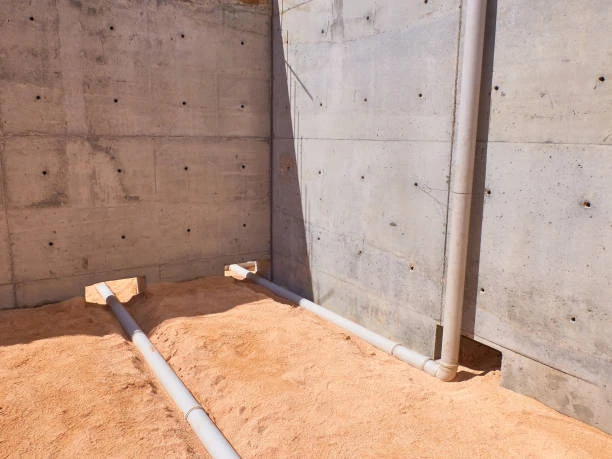The Plastics Pipe Institute (PPI) has emphasized the growing importance of recycled plastics use in modern piping systems and infrastructure projects. By advocating for sustainable practices, the PPI highlights how recycled plastics can transform the industry while supporting environmental goals. Below, we explore the benefits, applications, and advancements in recycled plastics use.
Recycled Plastics Use Enhances Sustainability in Piping Systems
The PPI promotes recycled plastics use as a sustainable alternative to traditional materials. Recycled plastics reduce waste and conserve resources. Their use aligns with global efforts to create environmentally friendly and durable piping systems.
Applications of Recycled Plastics Use in Infrastructure
Recycled plastics play a vital role in construction, agriculture, and water management projects. Pipes made from recycled plastics are lightweight, durable, and resistant to corrosion. These characteristics make recycled plastics a practical choice for diverse infrastructure applications.
Recycled Plastics Use Supports Green Infrastructure
The PPI highlights the role of recycled plastics in building green infrastructure. Drainage systems, water pipelines, and irrigation systems made from recycled plastics reduce environmental impact. Their durability ensures long-term performance with minimal maintenance.
Economic Benefits of Recycled Plastics Use
Recycled plastics use helps lower production costs for piping systems. Manufacturers save money by using recycled materials instead of virgin plastic. These savings are passed on to consumers, making recycled plastic products more affordable.
Recycled Plastics Use Meets Industry Standards
The PPI works to ensure that recycled plastic meet the highest industry standards. These materials undergo rigorous testing to ensure durability, safety, and reliability. Pipes made from recycled plastic perform just as well as those made from traditional materials.
Challenges in Recycled Plastics Use
The PPI addresses challenges such as quality control, limited recycling infrastructure, and public perception. Advancements in recycling technologies help overcome these barriers. Partnerships between governments, industries, and consumers can further support recycled plastics use.

Environmental Impact
Recycled plastic help lower greenhouse gas emissions by reducing reliance on virgin plastic production. Recycling diverts plastic waste from landfills, conserving natural resources. Recycled plastic use also supports a circular economy, keeping materials in use longer.
Drives Innovation in Pipe Manufacturing
Advancements in pipe manufacturing increasingly depend on the integration of recycled plastic, which has transformed the industry by making it more sustainable and efficient. The use of recycled plastic has enabled manufacturers to develop innovative designs that improve the performance and longevity of pipes while reducing their environmental impact. These designs not only address the growing demand for eco-friendly materials but also help industries comply with global sustainability goals.
One prominent example is plastic-modified asphalt, which incorporates recycled plastic into road construction. This innovation improves asphalt durability, making it more resistant to cracking, extreme temperatures, and heavy traffic. By using recycled materials, this process reduces waste and decreases reliance on virgin resources, providing a practical solution for both infrastructure and environmental challenges.
Another breakthrough involves multi-layered pipes that utilize recycled plastic in their core layers while maintaining virgin plastic for the outer layers. This combination ensures the pipes retain strength and durability while reducing the amount of new material required. These multi-layered designs are particularly useful in water management, gas distribution, and construction, where reliability and cost-effectiveness are essential.
Incorporating recycled plastic into pipe manufacturing also supports a circular economy by keeping materials in use and minimizing waste. Manufacturers benefit from reduced production costs while offering products that are both high-performing and environmentally friendly. These advancements demonstrate that recycled plastic are not just a sustainable choice but also a driver of innovation and efficiency in the industry.
As technology and recycling methods continue to evolve, the role of recycled plastic in pipe manufacturing will expand further, paving the way for even more advanced designs that balance performance, cost, and sustainability. This shift marks a significant step forward in creating greener, smarter infrastructure solutions.
Future in the Piping Industry
The PPI envisions a future where recycled plastic dominate the piping industry. Continued investment in recycling technologies and supportive policies will accelerate this transition. Recycled plastic use will remain a cornerstone of sustainable infrastructure development.
How the PPI Promotes Recycled Plastic Use
The Plastic Pipe Institute collaborates with manufacturers, policymakers, and consumers to promote recycled plastic use. The organization provides research, training, and resources to advance the adoption of recycled materials. Its efforts support a global shift toward sustainable practices.
FAQs
1. What are the benefits of using recycled plastic in piping systems?
Recycled plastic reduce waste, lower costs, and provide durable, environmentally friendly solutions for infrastructure projects.
2. Are pipes made from recycled plastic as reliable as traditional ones?
Yes, pipes made from recycled plastic meet industry standards for safety, durability, and performance.
3. What industries benefit the most from recycled plastic use?
Construction, agriculture, and water management industries benefit from the affordability and durability of recycled plastic products.
4. What challenges does recycled plastic use face?
Challenges include inconsistent quality, limited recycling infrastructure, and public misconceptions about recycled materials.
5. How does the PPI promote recycled plastic use?
The PPI provides research, education, and collaboration with stakeholders to advance the adoption of recycled plastic in infrastructure.


















